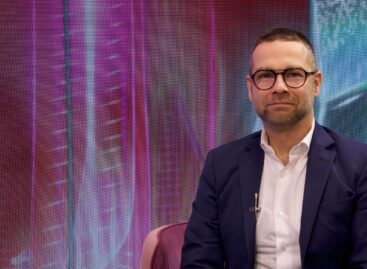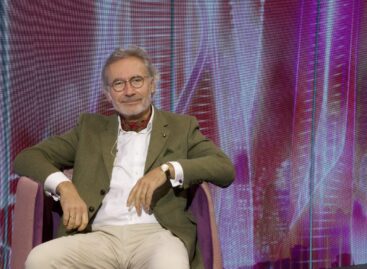István Lakatos: “I am not the failure-avoiding type, I am success-oriented”
István Lakatos, the CEO of Bravogroup Holding was Szilvia Krizsó’s guest in the latest episode of the Future Talks podcast. This article features parts of the conversation, but you can watch the whole interview at futuretalks.hu who.
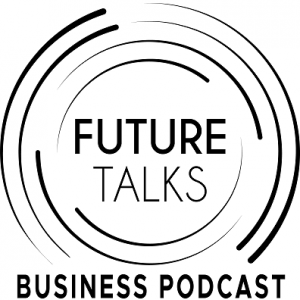
This article is available for reading in the digital issue of Trade magazin 2023/6-7.
A middle-distance runner who is a team-player
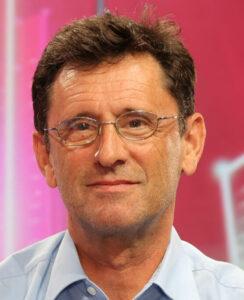
István Lakatos
CEO of Bravogroup Holding
Mr Lakatos doesn’t like to look back into the past, he never ponders about the things that already happened, instead of this he always sets his eyes on the future and what he can do there. He used to be a middle-distance runner, and in his view this is the kind of sport where first and foremost one must beat not the other runners but themselves. Bravogroup is a company where 800 people are working at 4 divisions, with an old friend from high school called Péter Lakatos as the co-owner.
Everything they do is teamwork – they want to be better than the competitors together. It is very easy for the two owners to work together, because they understand each other very well, but in spite of this they can’t stop arguing – until a third person steps in the picture, because then the two friends join forces instantly. When Ms Krizsó asked which those directions are where Bravogroup plans going, Mr Lakatos mentioned the energy sector, as there are many fields they would like to enter there, plus ha said in IT it is data security that is growing fast at the moment.
Growth, but not to the detriment of the Earth
Mr Lakatos explained that he would like to see his business grow not at the expense of the planet, but against its own competitors. When he says he wants to be Hungary’s biggest mobile phone seller, he doesn’t talk about selling five times more mobiles, but about being the biggest player in the market of a given size. In his view 5-10 years from now bioculture will be in a more advanced state than it is now, and the same is true for recycling. As regards energy, at the moment it can’t be told what it will entail if everything comes from a natural source. The CEO doesn’t believe in a single path or a universal method. Every individual is different and they need different methods to bring out the best in them.
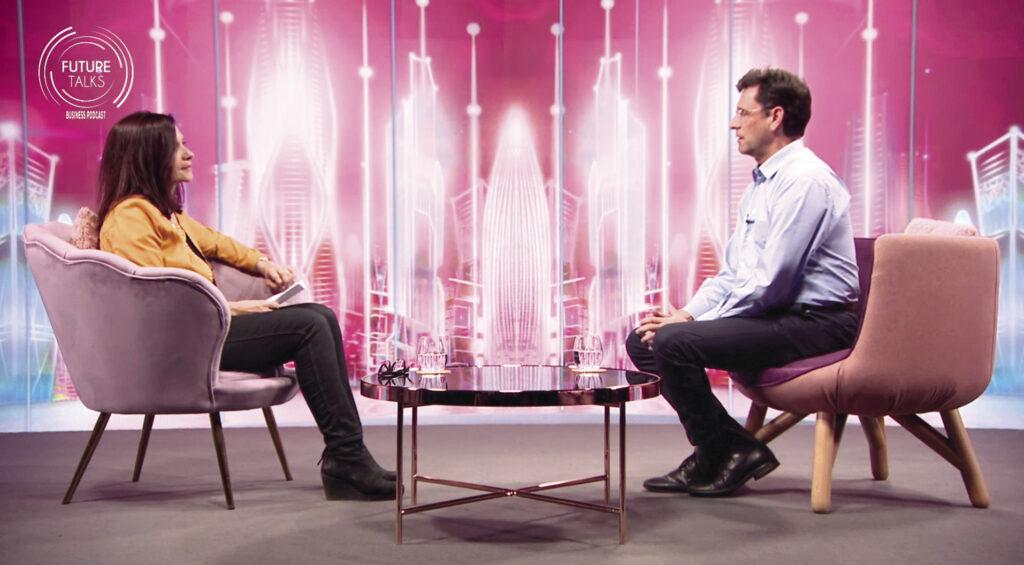
“If you feel good about yourself and want to please others, you will get it back”
Changes – without a paradigm shift
István Lakatos believes that artificial intelligence will bring about drastic changes in the lives of people. Machines will do many things that are done by humans at the moment. If we compare the present with the last 30-50 years, there has been no spectacular change, in the sense that there used to be hairdressers and gardeners back then and there are now. We are about to witness major changes, but there isn’t going to be a paradigm shift. The CEO isn’t afraid of the future, because he thinks people are social creatures and they always will be.
Ms Krizsó mentioned that many people say: failures are important in business, as one can learn a lot from them. Mr Lakatos believes the people who say this are the ones who failed. He reckons that we can learn from success too; he processes failure very easily, and for him everything is a challenge, so he isn’t a failure-avoiding type, he is success-oriented. //
Related news
(HU) Török Dávid: Misszióm, hogy megváltoztassam az ingatlanosok imázsát
🎧 Hallgasd a cikket: Lejátszás Szünet Folytatás Leállítás Nyelv: Auto…
Read more >(HU) Várkonyi Gábor: Lehallgatnak az okosautóink?
🎧 Hallgasd a cikket: Lejátszás Szünet Folytatás Leállítás Nyelv: Auto…
Read more >Related news
Lidl guarantees fairer prices for cocoa farmers
🎧 Hallgasd a cikket: Lejátszás Szünet Folytatás Leállítás Nyelv: Auto…
Read more >40 secure jobs, sustainable solutions – new BURGER KING® in Csepel
🎧 Hallgasd a cikket: Lejátszás Szünet Folytatás Leállítás Nyelv: Auto…
Read more >



